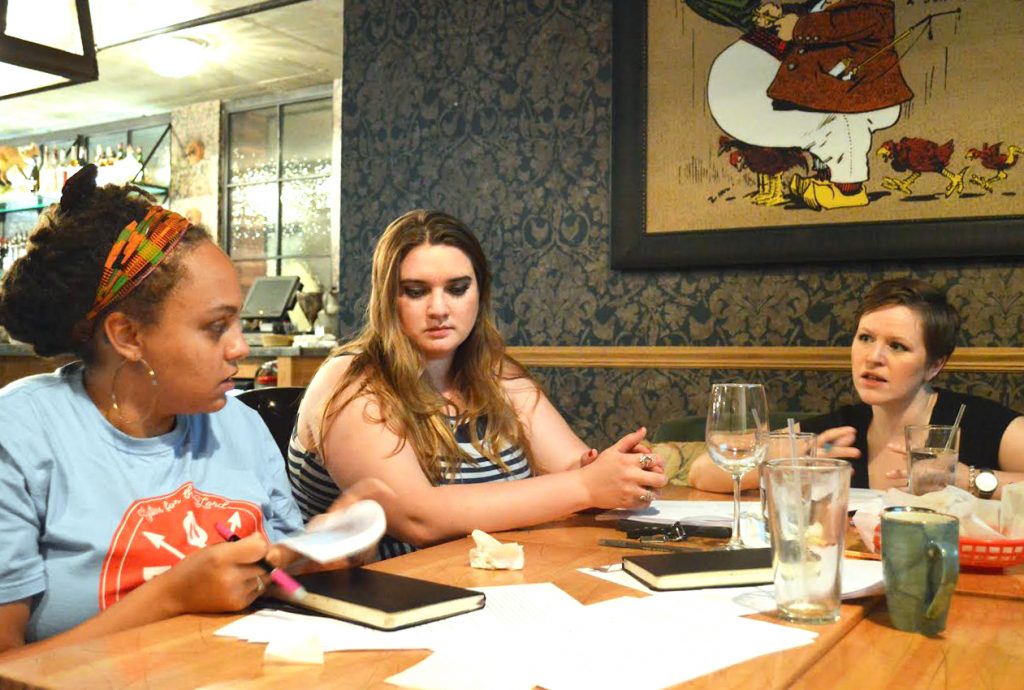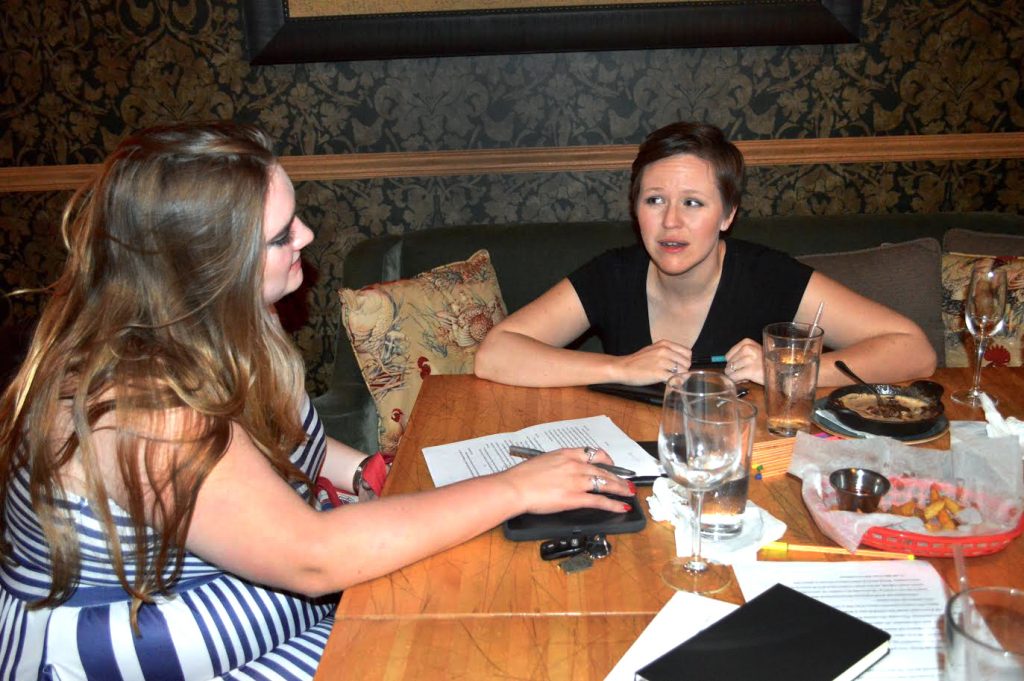On Tuesday night, a new creative writing group called the Oxford Comma sat in a corner of The Coop, the bar on the top floor of The Graduate. Its members were discussing two prose pieces, ŌĆ£Ice ColdŌĆØ and ŌĆ£Change the Scenery,ŌĆØ and one poem, all of which were written by participants.
The group functions as a university-unaffiliated workshop that is open to the public. It meets at 8:30 p.m. on the second and fourth Tuesdays of each month.
ŌĆ£The goal for this group is twofold ŌĆö to not just hone the craft of writing but to hone the writer and the skills they bring to the table,ŌĆØ the groupŌĆÖs founder Savannah Suttle said.
Suttle did not attend Ole Miss but is a 2010 graduate of Mississippi College and a 2014 graduate of Reformed Theological Seminary. She is a therapist in Tupelo but lives in Oxford and said she noticed a need for writing workshops other than those offered by schools.

Three students discuss their stories at meeting of a new creative writing group, the Oxford Comma. Photo by Jacqueline Schlick
ŌĆ£People have things for intramural sports and such after school and outside of school, but thereŌĆÖs not a whole lot for a writing community other than whatever you want to do online,ŌĆØ Suttle said.
Oxford is a town drenched in literary history that attracts writers with varying skill levels and familiarity with the writing community in Oxford. The Oxford Comma provides a resource for people who are not in school to continue the education and networking they might get in college.
ŌĆ£I graduated college, and thatŌĆÖs where I had a community of writers. But since IŌĆÖve graduated, I donŌĆÖt have that anymore,ŌĆØ said Mattie Thrasher, who participates in the group. ŌĆ£ItŌĆÖs nice to have a group such as this.ŌĆØ
Elizabeth Tettleton, who graduated from Ole Miss in 2014 and now works for the Alumni Association, had a similar experience. She graduated from the school and was looking for a way to find creative camaraderie and constructive analysis of her work.
ŌĆ£To have a network and a group of people I can go to with my writing who will give me feedback and keep me up-to-date with the things theyŌĆÖre trying out and doing will keep me propelling myself forward to try new things and pushing my limits,ŌĆØ Tettleton said.
By attending the meetings, writers establish accountability for their writing. Having a deadline of every two weeks to offer a revised or new piece of writing to the group can motivate writers to sit down and write. ┬Ā

Three students discuss their stories in the new creative writing group, the Oxford Comma. Photo by Jacqueline Schlick
Members are encouraged to bring whatever they are working on, whether that is fiction, nonfiction, poetry, screenplays, song lyrics or even a prepared speech.
ŌĆ£Really, the only thing weŌĆÖre not here for is to edit your English papers,ŌĆØ Suttle said. ŌĆ£Everything else, come on.ŌĆØ
Each workshop begins anonymously. All contributing writers will have anonymous copies of their pieces on the table. After the pieces have been read by everyone at the table, the writer will be announced. This is meant to keep all preconceived notions and biases out of the critiquing process.
Writers interested in attending meetings are not required to turn in material each week and are welcome to simply attend to offer critiques of other attendeesŌĆÖ works. Anyone interested in joining should reach out to Suttle at savannah.b.suttle@gmail.com with the subject ŌĆ£Oxford Comma.ŌĆØ






